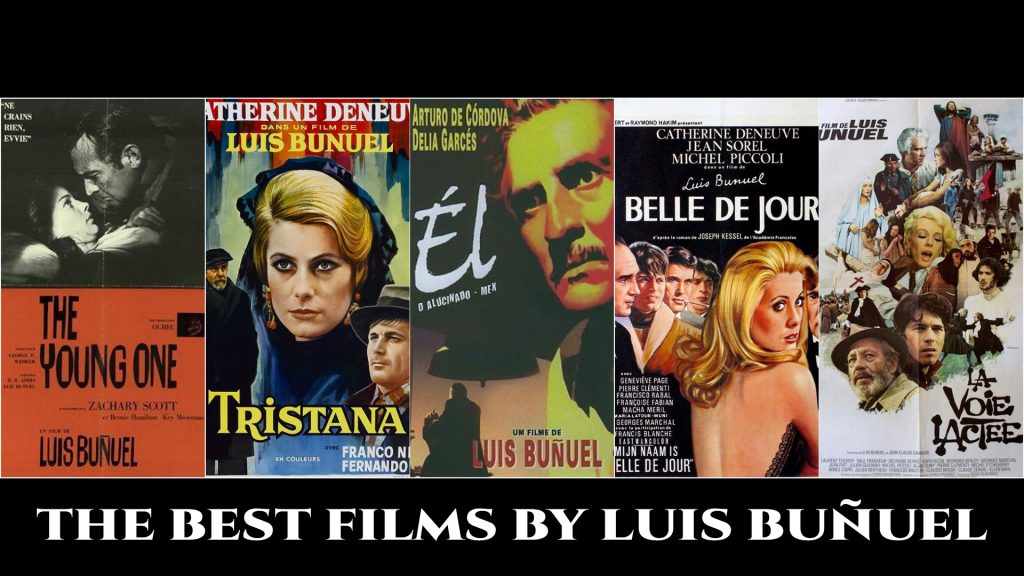
The Best Films by Luis Buñuel
Luis Buñuel, the legendary Spanish filmmaker and one of the pioneers of surrealist cinema, has left an indelible mark on the world of filmmaking with his thought-provoking and avant-garde films. In this filmmaking blog, we delve into some of Buñuel‘s films that have stood the test of time and continue to captivate audiences worldwide.
“Los Olvidados,” also known as “The Young and the Damned,” is a gritty exploration of the harsh realities faced by marginalized youth in the slums of Mexico City. Buñuel‘s unflinching portrayal of poverty, violence, and despair showcases his ability to blend social critique with poetic storytelling.
The Exterminating Angel (1962):
A surreal and enigmatic film, “The Exterminating Angel” revolves around a group of guests unable to leave a luxurious mansion after a dinner party. Buñuel skillfully combines absurdity and social commentary to create a film that challenges societal norms and exposes the fragility of human behavior.
Un Chien Andalou (1929):
Co-created with artist Salvador Dalí, “Un Chien Andalou” is a groundbreaking short film that defies narrative conventions. Its dreamlike, disjointed sequences and iconic imagery, including the infamous eyeball-slicing scene, make it a landmark in surreal films.
L’Age d’Or (1930):
Continuing his collaboration with Salvador Dalí, Buñuel‘s “L’Age d’Or” is a surreal exploration of desire and societal taboos. The film‘s provocative nature led to its ban in several countries, cementing Buñuel‘s reputation as a daring and controversial filmmaker.
“Viridiana” is a complex meditation on morality, faith, and human nature. The film follows a young novice who, after inheriting a substantial fortune, attempts to carry out charitable acts, only to encounter the darker aspects of human behavior. Buñuel‘s critique of societal hypocrisy is both biting and profound in this film.
The Discreet Charm of the Bourgeoisie (1972):
In this absurdist comedy, Buñuel satirizes the lives of the upper class. “The Discreet Charm of the Bourgeoisie” weaves a surreal narrative around a group of friends attempting to have a meal together, only to be thwarted by a series of bizarre events. The film won the Academy Award for Best Foreign Language Film.
The Obscure Object of Desire (1977):
In his final film, Buñuel offers a unique narrative by casting two actresses in the role of the protagonist, creating a sense of ambiguity around desire and its object. This provocative exploration of love and obsession serves as a fitting conclusion to Buñuel‘s illustrious career.
El (1953):
“El” is a lesser-known gem in Buñuel ‘s filmography, yet it showcases his skill in crafting a psychological thriller film. The film follows a young boy who believes he has witnessed a murder, blending elements of suspense with social commentary.
Le fantôme de la liberté (1974):
In this surreal comedy, Buñuel disrupts traditional storytelling by presenting a series of loosely connected vignettes. “Le fantôme de la liberté” challenges the audience’s expectations and invites them to question the nature of freedom and societal norms.
Luis Buñuel‘s films remain timeless, pushing the boundaries of cinema and challenging audiences to think beyond the conventional. The film festival Luis Buñuel Memorial Awards (LBMA) stands as a testament to his enduring legacy. The LBMA not only celebrates the works of Buñuel but also encourages emerging filmmakers to embrace innovation and artistic expression. In a world inundated with mainstream films, Luis Bunuel Memorial Awards remain a vital platform for non-mainstream, art-house films, fostering a cinematic culture that honors Buñuel‘s spirit of creativity and rebellion. As we navigate through filmmaking, LBMA continues to inspire a new generation of filmmakers to find their voice and contribute to the film industry.